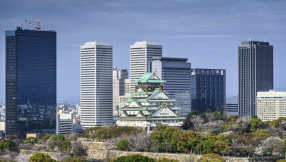UK urged to put pressure on World Bank over funding for 'dirty' fossil fuels
It is urging international development secretary Andrew Mitchell to use his position on the board of the World Bank to press for an end to investment in carbon-intensive energy projects.
It believes the need for reform is urgent after the World Bank emerged as the front runner at the recent UN climate change summit in Cancun to administer the multi-billion dollar Green Climate Fund that will assist the poorest countries by 2020.
With the World Bank currently reviewing its energy policies, Christian Aid believes now is the time to call upon the institution to invest its billions in carbon-safe, clean ways of generating energy, such as solar and small-scale hydroelectric, and biomass projects which can deliver clean energy directly to poor people.
Such a shift would help avert climate chaos, whilst meeting the energy needs of poorer communities and helping them out of poverty, says Christian Aid senior climate policy adviser Dr Alison Doig.
"Mr Mitchell must use his position to urge a fundamental rethink of World Bank energy policies," she said.
"Unless it changes, it is completely unsuited to act as a conduit for climate change funds.
"At present, the bank’s billions prop up dirty energy production across the developing world, fuelling climate change while locking poor countries into outdated, destructive ways of producing energy."
Mr Mitchell has previously spoken of his support for the promotion of low-carbon growth and criticised the Labour government for using British taxpayers' money to subsidise dirty fossil-fuel power stations.
Dr Doig said: "Mr Mitchell must live up to his earlier backing for low-carbon development. The World Bank is mandated to provide financial and technical assistance to developing countries to help them improve the lives and livelihoods of the world’s poorest. Instead, it does those living in poverty a double disservice.
"Not only are deprived communities in the world’s poorest countries most vulnerable to the floods, storms, droughts and other disasters caused by climate change, they are unlikely to receive energy from World Bank-supported projects, which tend to favour industry and rich households."













